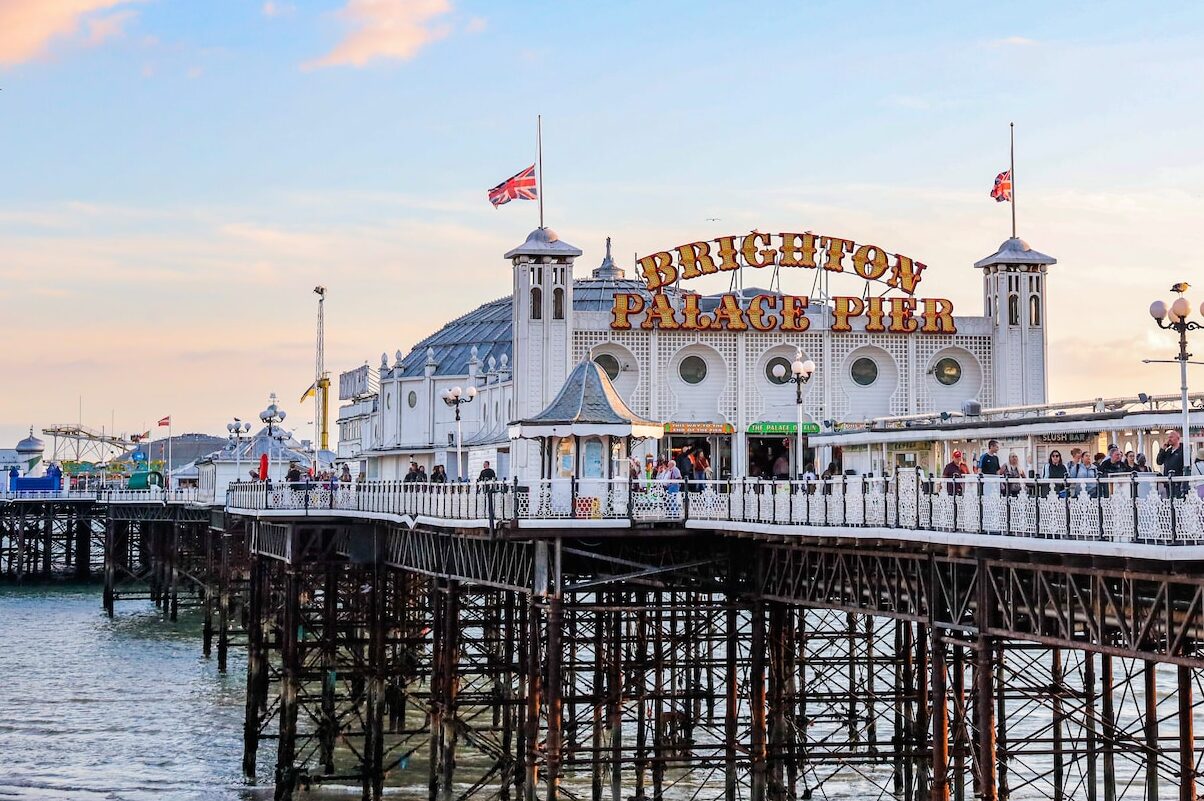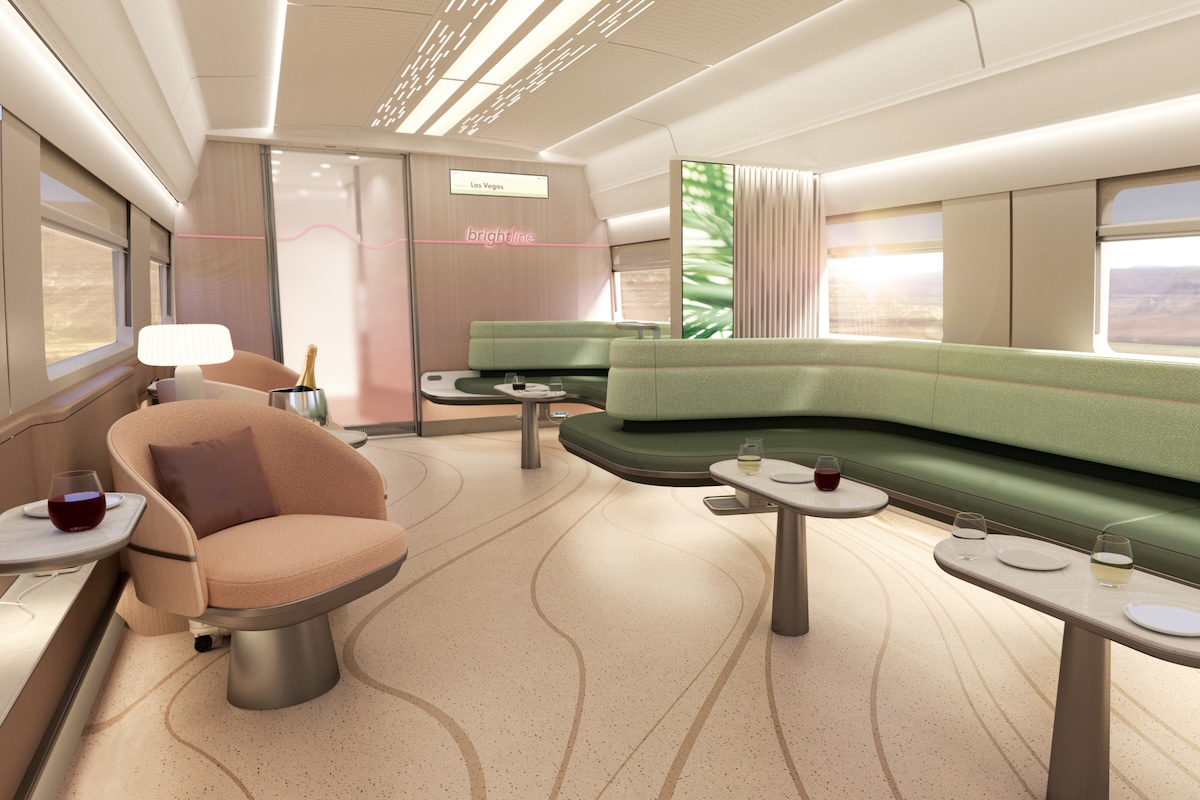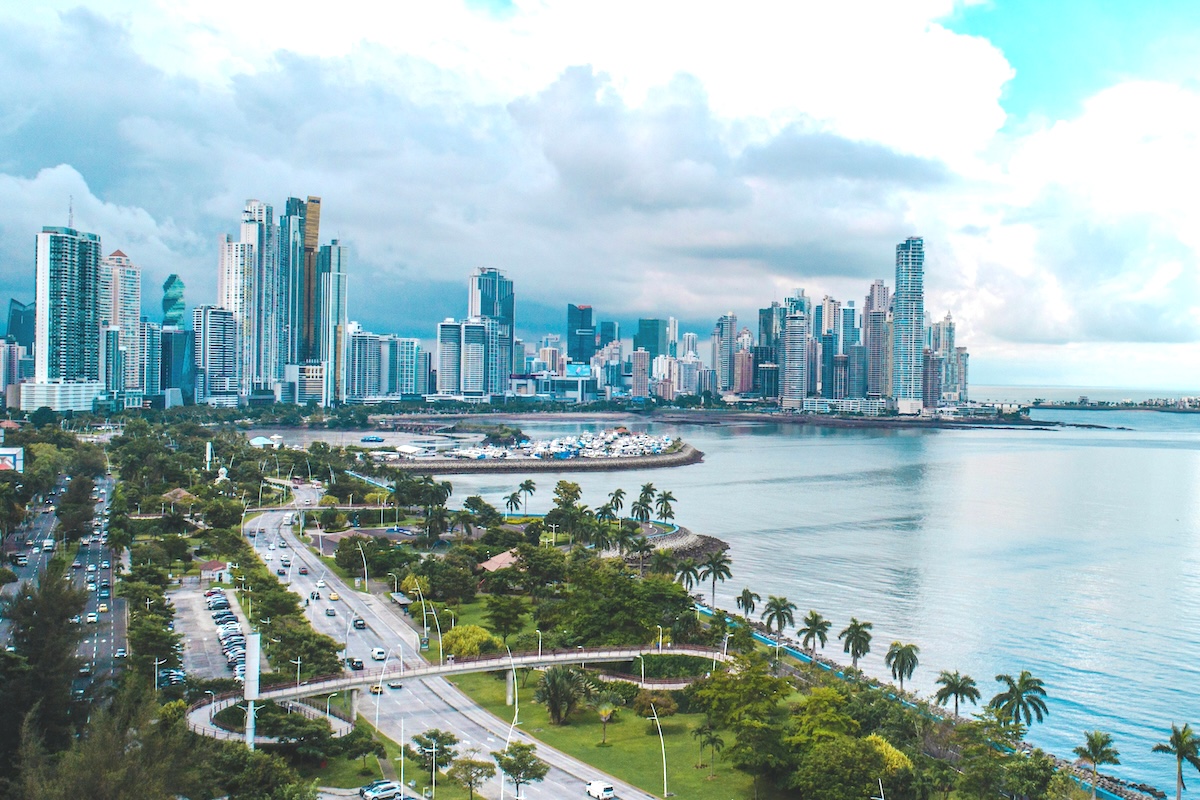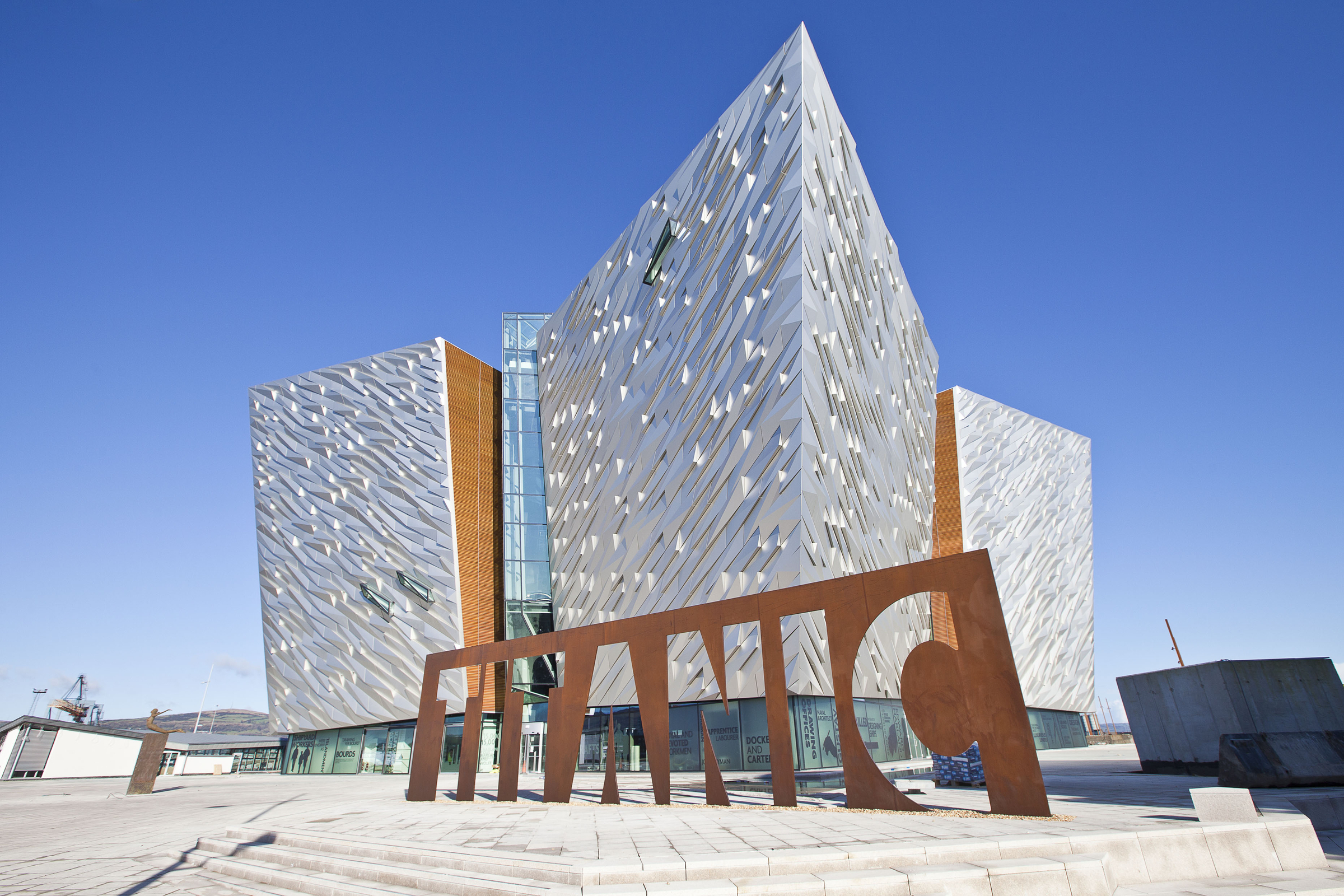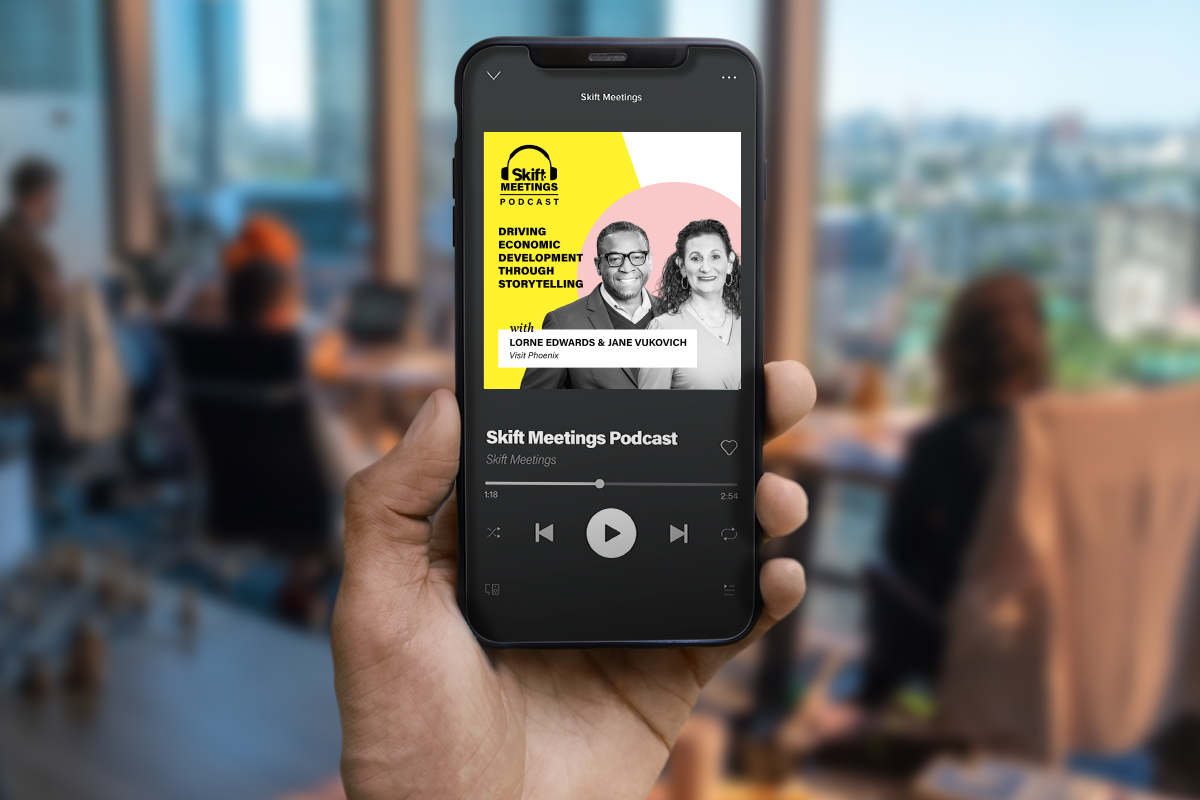Skift Take
Two years later than initially planned, MPI's European conference attracted around 300 participants to Brighton, UK. Over three days, meeting professionals discussed the need to build forward rather than build back.
Two years later than initially planned, Meeting Professionals International (MPI) hosted its European Meetings and Events Conference (EMEC) in Brighton, UK, this week. Twice postponed due to the Covid pandemic, the conference attracted around 300 participants, thanks to persistent efforts from MPI and the local host committee.
This was the first time this conference was held in the UK since 2008, when it was held in London with a record-breaking attendance of 538. MPI has held an annual European conference since 1988 called Professional Events Conference Europe (PEC-E) until 2008. MPI has had active chapters in Europe since MPI Italia Chapter was formed in 1991. Although membership was severely impacted by the Covid Pandemic, MPI has approximately 700 members across Europe.
VisitBritain supported the conference and organized familiarization trips for hosted buyer groups that toured the UK before the conference. These groups and additional hosted buyers from Europe and the U.S. took part in pre-conference business appointments.
Collaborative Approach
MPI took a collaborative approach with other international associations active across Europe. City Destinations Alliance (CityDNA), the Events Industry Council (EIC), the International Association of Conference Centers (IACC), the International Association of Professional Congress Organisers (IAPCO), the International Congress and Convention Association (ICCA) and the Society for Incentive Travel Excellence (SITE) all had a presence.
SITE CEO Annette Gregg and IACC CEO Mark Cooper joined MPI CEO Paul Van Deventer on the main stage for the first keynote panel discussion titled ‘Renaissance in the Events Sector’.
The IMEX Connection
With IMEX being MPI’s strategic sponsor and largest financial contributor, bringing MPI’s European conference to its home city was a no-brainer. IMEX is a private, family-owned company in Brighton and Hove; its offices are less than two miles away from the host venue.
IMEX’s presence was felt throughout the conference, with two members of the IMEX team, Suzanne Medcalf Mulligan (engagement strategist) and Richard Allchild (head of sales North America) – both of which have presided over an MPI Chapter – leading the host committee and effectively acting as master of ceremonies. IMEX CEO Carina Bauer shared her industry insights from the main stage and participated in breakout sessions. Tahira Endean, IMEX’s head of program, and Medcalf Mulligan also lead breakout sessions. In addition, several members of the IMEX team were active behind the scenes.
Key Messages
The initial panel discussion set the tone for the conference. The message from the stage was a call to action for positive change and encouraging meeting professionals to embrace change. Cleo Battle, president and CEO of Louisville Tourism and chair of MPI’s International Board of Directors, encouraged those present to “build forward” rather than “build back.”
The following discussions focused on designing experiences, making the best use of technology, making diversity and inclusion part of the planning process, and improving sustainability. These core topics resonated with the audience, yet the challenge of going from desire to action seemed daunting.
Off-Stage Discussions
There was conviction and energy on stage, but the audience’s conversations differed. MPI European members were visibly happy to gather once more. The camaraderie among volunteers leading different chapters across Europe was evident. While they may have already met at other industry events, this was different.
Positivity reigned, and no one complained about a lack of business. However, mixed with elation, there was also a general feeling of exhaustion. According to several independent meeting planners, bookings are booming, even more than last year. At the same time, costs are rising, with some events being priced out of desired locations. Also, service levels do not match what was expected before the Covid pandemic. Add in anxiety about global economic uncertainty, creating an almost perfect recipe for burnout.
The Hits
The conference program offered a balance of keynotes with experts talking from the stage with more interactive breakout sessions. The interactive and experiential learning journeys took up a prime time in the afternoon of the second day of the conference. Working with local experts to design the education program was a great way to embed Brighton’s creative culture into the program. Kim Myhre, founder and managing partner of Experience Designed, and independent creative director Robert Dunsmore led the education programming.
Using local venues and suppliers was also evident in the choice of venues and leisure activities. The host hotel housed the educational side of the conference, apart from the learning journeys. A VIP dinner at the flamboyant Brighton Pavilion and receptions at Shelter Hall and Brighton Peer all used local suppliers. All but one site was within walking distance from the host hotel, which kept transportation needs minimal.
Shelter Hall was a particularly good fit. MPI took over the upscale seaside food court for the evening, located just across the street from the host hotel. With a wide range of food and drink served daily, using the venue meant a minimal environmental impact and funds feeding into the local economy.
The Misses
The conference brought together many different groups. MPI’s International Board of Directors and the MPI Foundation’s Global Board of Trustees held their quarterly meetings before the conference. MPI Chapter Leaders also had a day-long meeting on the first day. Hosted buyers participated in two half-days of appointments, some coming from familiarization trips before that. Bringing these groups together is exciting but also presents a fascinating networking challenge. While the extroverts navigated the conference easily, more could be done to create synergies and curate moments of connection between the groups. Relying on evening functions to help is not enough, particularly for those who do not drink alcohol or shy away from loud environments.
Walking to venues and to the learning journeys was enjoyable and healthy for most. However, some were challenged by physical exertion and did not feel included.
The audiovisual setup was managed by sponsors Encore. Despite the audiovisual giant looking to show off its capabilities, there were no cameras to be seen. None of the sessions, even the main stage, were captured on video. While this may have been a strategic choice or a budgetary restriction, it feels like a missed opportunity. Repurposing content from an in-person event with this level of content curation would seem like a valuable thing to do.
Next Stop: Luxembourg
MPI’s European community is heading to Luxembourg next. Business Events Luxembourg and the newly expanded MPI Belgium-Luxembourg Chapter are taking on the hosting duties. Dates for the 2024 edition were not announced, but the conference will follow a Sunday-Tuesday pattern in February.
The country’s convention bureau began its operations in 2019 and is led by François Lafont. It is looking to showcase Luxembourg’s research communities and educational institutions. The country has a high level of hosting experience with the many European Union meetings and events hosted in Luxembourg City, one of the three capitals of the EU.
Photo credit: Janice Kwong / Unsplash
